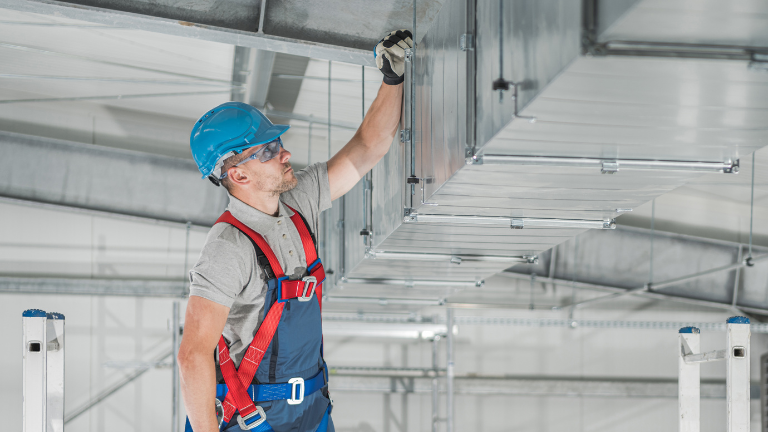
1. Filtration Efficiency
MERV 8/10 filters are capable of capturing particles as small as 3 microns, including pollen, dust mites, mold spores, and pet dander. MERV 13 filters provide a higher level of filtration and can trap particles as small as 1 micron, including smaller dust particles, bacteria, and some viruses.
2. Airflow Restriction
MERV 13 filters tend to have higher airflow resistance compared to MERV 8/10 filters. This means that the air must pass through a denser filter material, which can potentially reduce the airflow in your HVAC system, however by using a high-capacity MERV 13 this can be overcome to some extent. Most newer commercial systems are designed to handle MERV 13 filters. Improvements in both filter manufacturing techniques and new media improvements have overcome many of the apprehensions around using MERV 13 filters. Some of these advancements include adding more media and more pleats to the filters and using a nanofiber media that creates less pressure drop.
3. Indoor Air Quality
MERV 13 filters provide better air filtration and can improve indoor air quality by capturing a broader range of contaminants. They are especially beneficial for people with allergies, asthma, or respiratory sensitivities, as they can help reduce the presence of smaller particles that may trigger symptoms.
4. Maintenance and Replacement
MERV 13 filters generally require more frequent replacement compared to MERV 8/10 filters. The increased efficiency of MERV 13 filters means that they can accumulate particles more quickly, reducing their effectiveness over time. Regular filter maintenance and replacement are crucial to ensure optimal filtration efficiency.
When deciding between MERV 8/10 and MERV 13 filters, consider your specific needs and the requirements of your HVAC system. If you have respiratory concerns or are particularly concerned about airborne contaminants, a MERV 13 filter may be more suitable. Many guidelines surrounding healthy buildings suggest MERV 13 filters for improved indoor air quality and in some cases, grants are available to help some facility types, upgrade their equipment for this purpose.
Every application stands on its own and engaging one of our CAFS trained specialists is highly recommended.
Headquarters and Warehouse #1
2567 Prime Way
Knoxville, TN 37918
(865) 525-8697
Production Facility and Warehouse #2
2551 Prime Way
Knoxville, TN 37918
High Purity Facility and Warehouse #3
2535 Prime Way
Knoxville, TN 37918